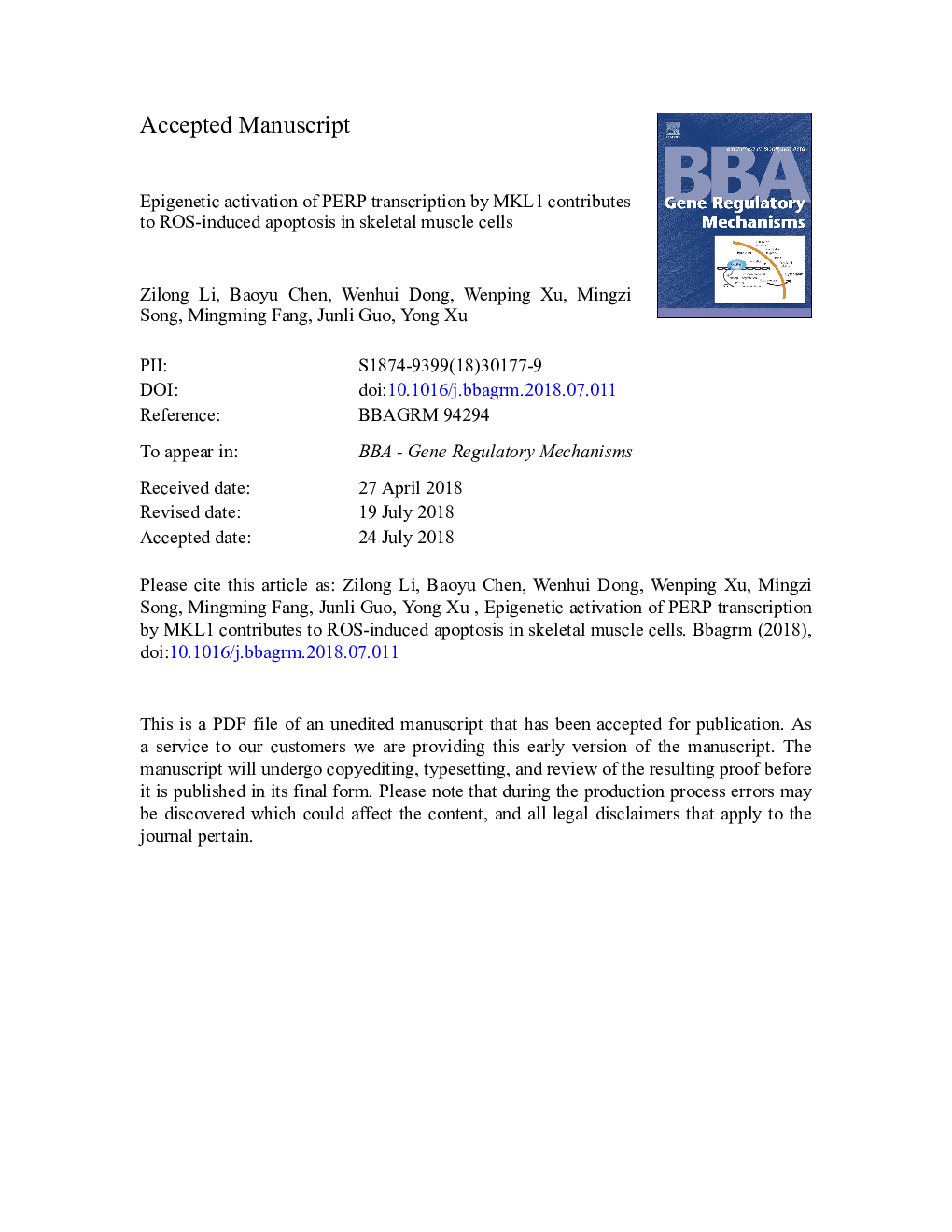| Article ID | Journal | Published Year | Pages | File Type |
|---|---|---|---|---|
| 10137037 | Biochimica et Biophysica Acta (BBA) - Gene Regulatory Mechanisms | 2018 | 32 Pages |
Abstract
Excessive reactive oxygen species (ROS) causes irreparable damages to cells and commit cells to programmed cell death or apoptosis. A panel of well-documented pro-apoptotic genes, including p53 apoptosis effector related to PMP-22 (PERP), are up-regulated and collectively mediate ROS induced apoptosis. The epigenetic mechanism whereby ROS stimulates PERP transcription, however, lacks in-depth characterization. Here we report that the transcriptional modulator megakaryocytic leukemia 1 (MKL1) is activated by H2O2 treatment in skeletal muscle cells (C2C12). Small interfering RNA (siRNA) mediated silencing or small-molecule compound (CCG-1423) mediated inhibition of MKL1 attenuated H2O2 induced apoptosis of C2C12 cells. Over-expression of MKL1 potentiated trans-activation of PERP whereas MKL1 ablation/inhibition abrogated the induction of PERP by H2O2 in C2C12 cells. Mechanistically, MKL1 interacted with and was recruited to the PERP promoter by the transcription factor E2F1. Once bound to the PERP promoter, MKL1 engaged the histone demethylase KDM3A to modulate the chromatin structure surrounding the PERP promoter thereby leading to PERP trans-activation. Depletion of either E2F1 or KDM3A blocked the induction of PERP by H2O2. In conclusion, our data illustrate a novel epigenetic pathway that links PERP transcription to ROS-induced apoptosis in skeletal muscle cells.
Related Topics
Life Sciences
Biochemistry, Genetics and Molecular Biology
Biochemistry
Authors
Zilong Li, Baoyu Chen, Wenhui Dong, Wenping Xu, Mingzi Song, Mingming Fang, Junli Guo, Yong Xu,
